Older women without close friends often carry silent habits that reveal more than words ever could.
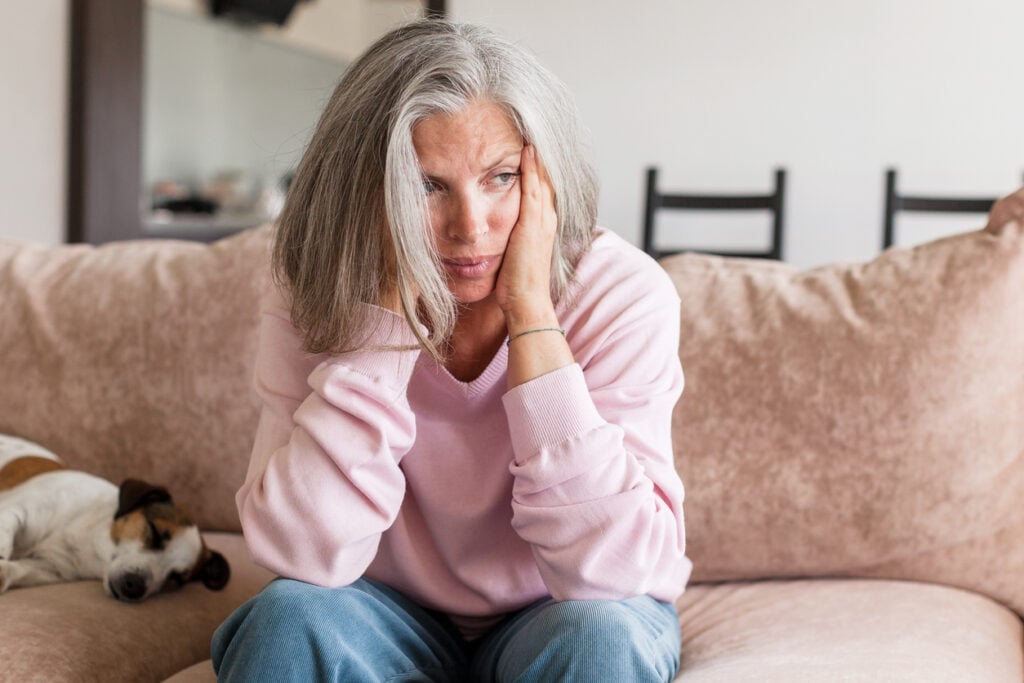
Loneliness doesn’t always show up as tears or isolation. Sometimes, it hides in quiet routines, subtle gestures, and the spaces between conversations. Older women who lack close friendships often develop behaviors that seem ordinary on the surface but hint at a deeper sense of disconnection. They’ve learned to fill their days, mask the emptiness, and find comfort in routines that don’t rely on anyone else. These aren’t dramatic signs—they’re whispers woven into everyday life.
Here are the quiet behaviors that speak volumes about the friendships they’ve lost—or never had.
1. They talk to themselves more than most people realize.

Without close friends to share daily thoughts with, older women often find themselves filling the silence by talking to themselves. It might be a casual comment while cooking, narrating what they’re doing, or even having full-blown conversations when no one’s around. This habit isn’t a sign of losing touch with reality—it’s simply a way to process thoughts and feelings out loud, as shared by Zayda Slabekoorn at Your Tango.
Talking to oneself can feel like a substitute for the casual, comforting conversations that friendships provide. It’s a small act that helps ease loneliness, offering a sense of connection, even if it’s just with their own voice. Over time, it becomes a natural part of their daily routine.
2. They create strict routines to structure their days.
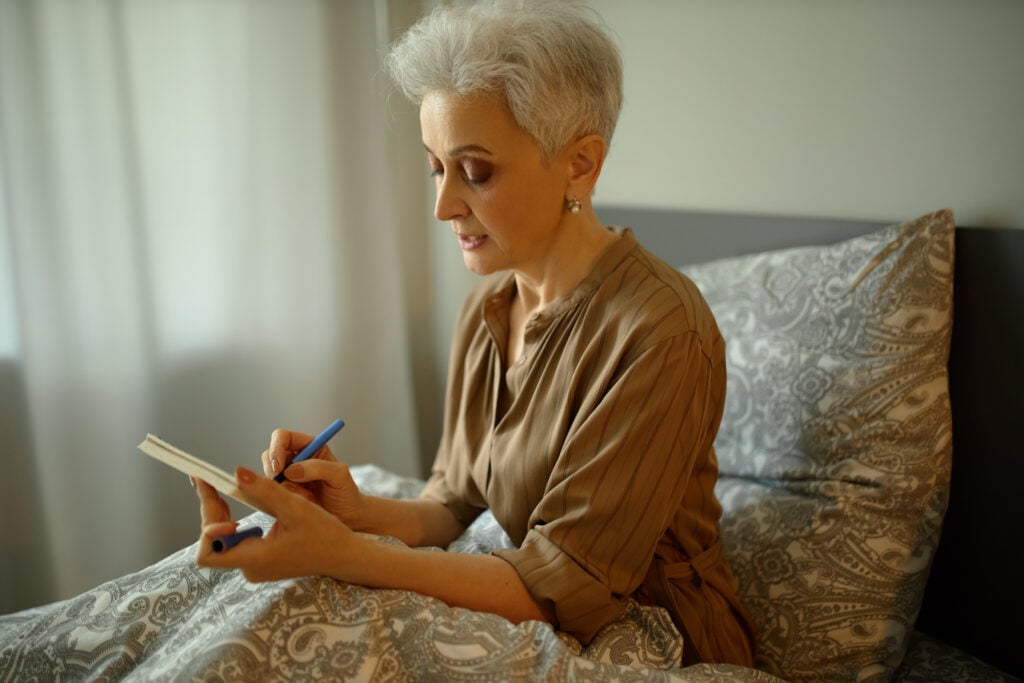
Routines provide a sense of purpose and stability, especially when there aren’t close friends to add variety to daily life. Older women without strong social ties often stick to the same schedule—waking up, eating, and going to bed at the same times every day. Their activities, like morning walks or afternoon tea, become rituals that fill the emotional gaps friendships might otherwise occupy, according to Zenya Smith at Elder.
These routines aren’t just about productivity; they create a comforting rhythm. When no one’s calling to make spontaneous plans, routines offer predictability in an otherwise quiet world. The structure becomes a silent companion, providing comfort without conversation.
3. They linger in public places just to feel surrounded by people.

Older women without close friends often find comfort in being around strangers. You’ll see them sitting in cafes, walking slowly through grocery stores, or spending extra time at the library—not because they need to, but because it feels less lonely than being at home alone. The background noise of life happening around them provides a quiet sense of connection.
Even if they don’t strike up conversations, simply being in public spaces offers a feeling of belonging. It’s a way to experience community without the vulnerability that comes with forming new relationships. These small, unspoken interactions can be surprisingly soothing, as mentioned by Ava Sinclair at Blog Herald.
4. They avoid social gatherings where they might feel like an outsider.

While it seems like attending more social events would help with loneliness, older women without close friends often do the opposite. Parties, gatherings, or even casual meetups can amplify feelings of isolation when everyone else seems connected. The fear of feeling left out or invisible often outweighs the potential for new connections.
Instead, they choose solitude over the emotional discomfort of standing alone in a crowd. It’s not that they dislike people—it’s the sting of realizing how disconnected they feel when surrounded by others. Quietly opting out becomes a protective habit to avoid that ache.
5. They develop deep bonds with pets or objects.
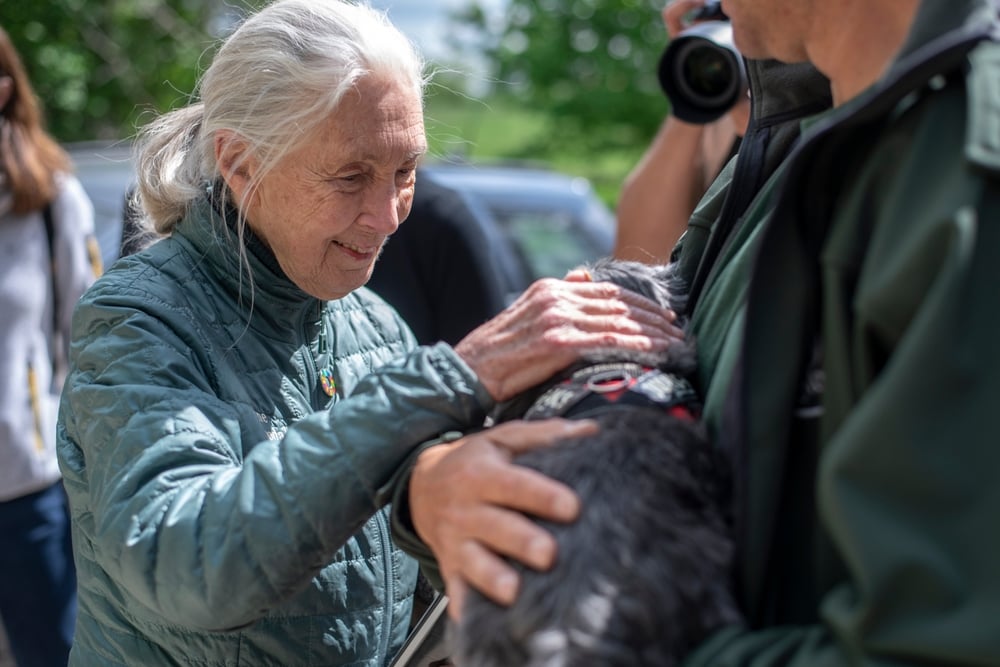
In the absence of close human connections, pets often become lifelines. An older woman without close friends might talk to her cat as if it’s her confidant or treat her dog like a constant companion. If she doesn’t have pets, objects like a cherished teapot, family heirloom, or even a favorite chair can hold emotional significance.
These bonds fill the emotional space that friendships usually occupy. The pet or object provides a sense of consistency, loyalty, and comfort—things that are often missing without close personal relationships. It’s a quiet way of anchoring themselves to something meaningful.
6. They overinvest in hobbies to fill emotional gaps.

Hobbies can be a healthy outlet, but for older women without close friends, they sometimes become more than just pastimes—they’re lifelines. Whether it’s gardening, knitting, puzzles, or even collecting items, these activities offer a sense of purpose and distraction from loneliness.
It’s not just about staying busy; it’s about creating something to care about when there’s no one else to lean on emotionally. The hobby becomes a companion, offering a sense of achievement and structure. It’s a quiet, personal world where they’re in control, and where loneliness can’t fully creep in.
7. They are overly polite or apologetic in casual interactions.

Without the ease of close friendships, casual social interactions can feel a bit daunting. Older women without strong social ties often overcompensate by being excessively polite, apologizing too much, or downplaying their own needs in conversations. It’s a way to avoid conflict and ensure they’re not a burden to others.
This behavior stems from a fear of rejection or judgment, especially when genuine connections are scarce. Being overly agreeable becomes a social survival tactic—a way to maintain surface-level interactions without risking deeper vulnerability. It’s polite on the outside, but often rooted in quiet insecurity.
8. They spend a lot of time reminiscing about the past.
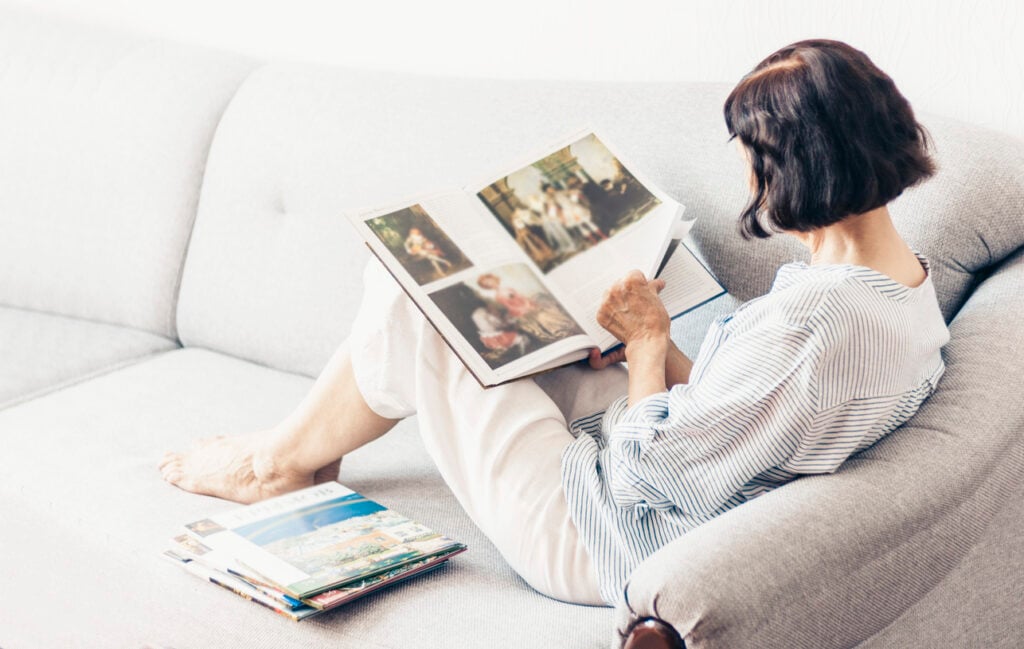
Memories can be both a comfort and a refuge. Older women without close friends often find themselves dwelling on the past—revisiting old photo albums, recalling happier times, or mentally replaying meaningful conversations from years ago. Nostalgia offers a connection to relationships that no longer exist, whether through distance, time, or loss.
While everyone reflects on their past, this kind of reminiscing often feels more intense and frequent. It’s not just fond memories—it’s a way to emotionally anchor themselves when the present feels too quiet. The past becomes a familiar friend when real ones are no longer close.
9. They hesitate to ask for help, even when they need it.

Independence often becomes a shield. Older women without close friends may avoid asking for help, not because they don’t need it, but because they fear being seen as a burden. They’ve grown used to handling things alone, and the idea of reaching out feels vulnerable—like admitting they don’t have a support system.
This self-reliance is both a strength and a quiet struggle. It means they deal with challenges silently, even when it would be easier with assistance. The reluctance to ask for help isn’t pride—it’s the weight of feeling like they have no one to lean on without strings attached.
10. They have conversations with strangers just for brief connections.

Even the most reserved older women sometimes crave connection, and small talk with strangers can be a lifeline. Chatting with a cashier, a neighbor passing by, or someone at the bus stop becomes more than just polite exchange—it’s a brief, meaningful human connection in an otherwise isolated day.
These interactions are short, low-risk, and don’t require the vulnerability of deeper friendships. They offer a momentary sense of belonging without the fear of rejection. It’s a quiet way of saying, “I’m here, I exist,” even if no one truly knows them.
11. They downplay their loneliness, even to themselves.
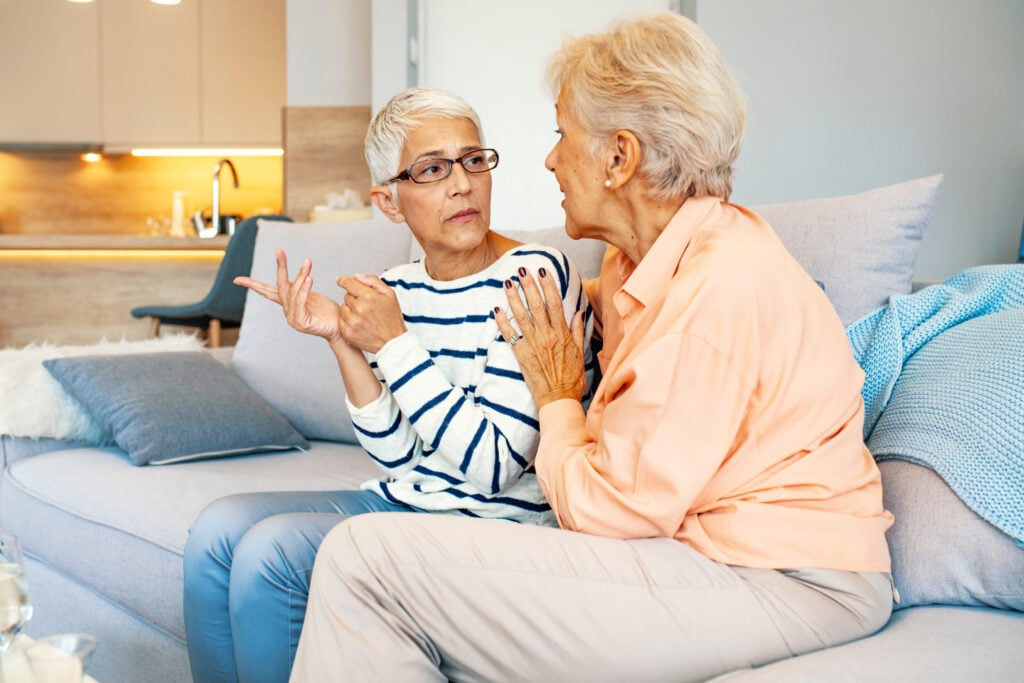
Admitting loneliness can feel like a failure, especially in a culture that values independence. Older women without close friends often downplay their feelings, convincing themselves they’re fine because they’re “used to it” or “too busy to be lonely.” This quiet denial helps them cope, but it also keeps them stuck in isolation.
It’s easier to focus on being self-sufficient than to face the vulnerability of longing for connection. They might laugh it off, make jokes about being a “hermit,” or insist they prefer solitude. But beneath the surface, there’s often an ache they rarely admit—even to themselves.
